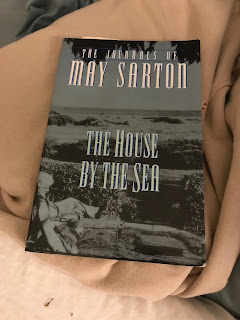 |
| photo by Amy Brandon |
“So many of us are reaching out, hoping someone out there will grab our hands and remind us we are not as alone as we fear.” ~Roxane Gay
A little over a year ago, I started working part-time and from home. For the first time in my life, my days are neither full of other people nor structured by any outside influence. Think about how strange that sounds. I don’t think my life has been like this since before kindergarten. I expect that would be true for most of us. It’s been like learning to be a different person. More properly, I suppose, it’s been like learning to be fully myself. I absolutely love it, but unforeseen learning curves have presented themselves.
One of the hardest questions I’ve had to ask myself has revolved around the questions of solitude and community. How much solitude is too much? How is community defined anyway? When I feel, as I often do, that there is no such thing as too much solitude, I begin to second-guess myself, to doubt my goodness as a person. What kind of misanthrope just wants to stay home all the time? But then when I do go out, I find both my social skills and my patience with what passes for entertaining interaction these days have atrophied to the point of being almost useless. And how about community? Is spending time with my husband community enough? Does online community count? Do I have to force myself to go out and do things I don’t necessarily want to do just to meet the requirement of being a well-adjusted person? Because here’s the thing, the days I feel the most well-adjusted are the days Ken and I are home alone together all day. Is that solitude or community? Maybe our cultureal expectations for what passses as well-adjusted are not right for some of us. I don’t know. I don’t have answers here, just hunches based on my own recent experience.
A few months ago I was asked to be involved in a small group based on the idea of a “Circle of Trust,” as defined by Parker Palmer in his book A Hidden Wholeness: The Journey Toward an Undivided Life. I didn’t stay with the group, partly because I didn’t want to have to shower and dress and drive an hour round trip in the dark to go, but also partly because I don’t think I am ready for that level of openness with others right now, but that’s a different issue. What I did do was to buy the book and begin to read slowly through it. Just tonight, as I was contemplating emailing the group leader (who is also a pastor) and asking him for help with the questions I mentioned above, I picked up the book instead and came across this passage:
“If we are to hold solitude and community together as a true paradox, we need to deepen our understanding of both poles. Solitude does not necessarily mean living apart from others; rather, it means never living apart from one’s self. It is not about the absence of other people -- it is about being fully present to ourselves, whether or not we are with others. Community does not necessarily mean living face to face with others; rather, it means never losing the awareness that we are connected to each other. It is not about the presence of other people -- it is about being fully open to the reality of relationship, whether or not we are alone.”
I love that passage, but I feel like I don't quite fully understand it yet. Last Wednesday night my son and I were having a conversation about what we should and should not expect from our relationships with others, both friends and partners, and some of his words helped me begin to broaden my understanding a bit. He said that we don’t need to expect a lot from most of our friends, if we have one friend or partner who is truly a reliable emotional partner to us. He said that what each of us needs is consistent, meaningful interaction with one person we trust, someone we feel free to be our true selves around. If we have this, we don’t need a lot of interaction with other people, but when we don’t have it, we feel driven to look without forethought and sometimes almost desperately for it elsewhere, and usually don’t find it because it is such a difficult thing to develop between two people. I had never formed that thought, but it explains a lot of the drama and distraction of periods of my own life when I felt that kind of connection lacking, as well as a lot of the drama and distraction of other people’s lives I watch from a distance.
As I said, at this point, I don't have any answers even for myself to most of these questions, but I am going to try to be more attentive to my own inner voice telling me what I need, even if that's just to sit on the porch with the dogs and watch the birds. Having fully internalized the puritanical, capitalistic work ethic of our society, that kind of need makes me feel selfish because I don't feel like I am contributing to society. I struggle with this a lot, but something I saw last week on Facebook, of all places, helped me re-frame my thinking:





